Why Do Dogs Eat Grass and What to Do About It

By Evelyn Harcourt
juli 31, 2025 - 1 min read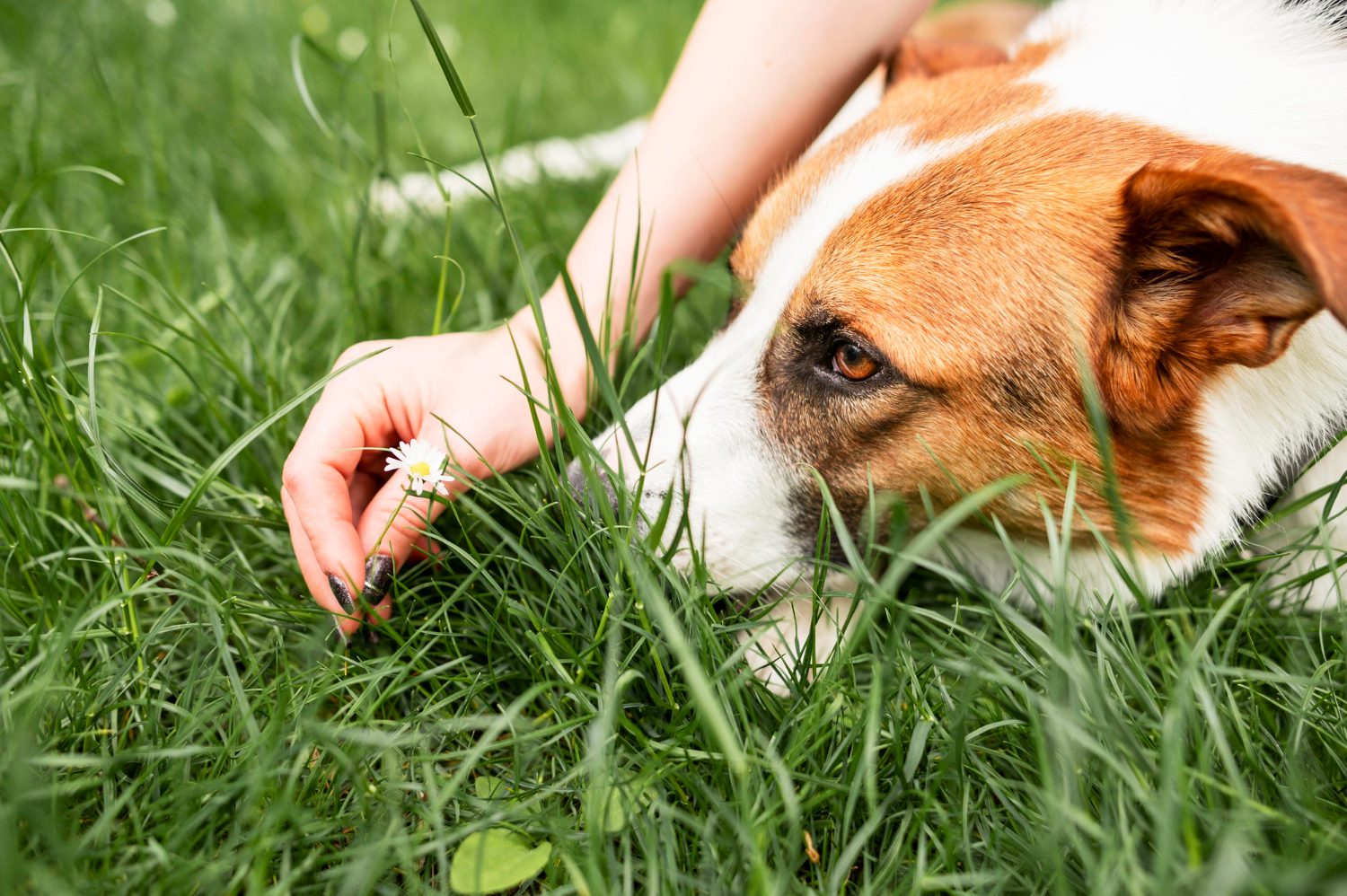
Almost every dog eats grass from time to time, and it is a natural and instinctive behaviour. Some individuals do it more than others, and some dogs find it quite a compulsion.
Grass eating has a wide range of potential causes and is sometimes linked to a medical or behavioural issue.
This article examines the potential causes and discusses when grass eating may be cause for concern. We also discuss preventative measures and when vet care would be indicated.
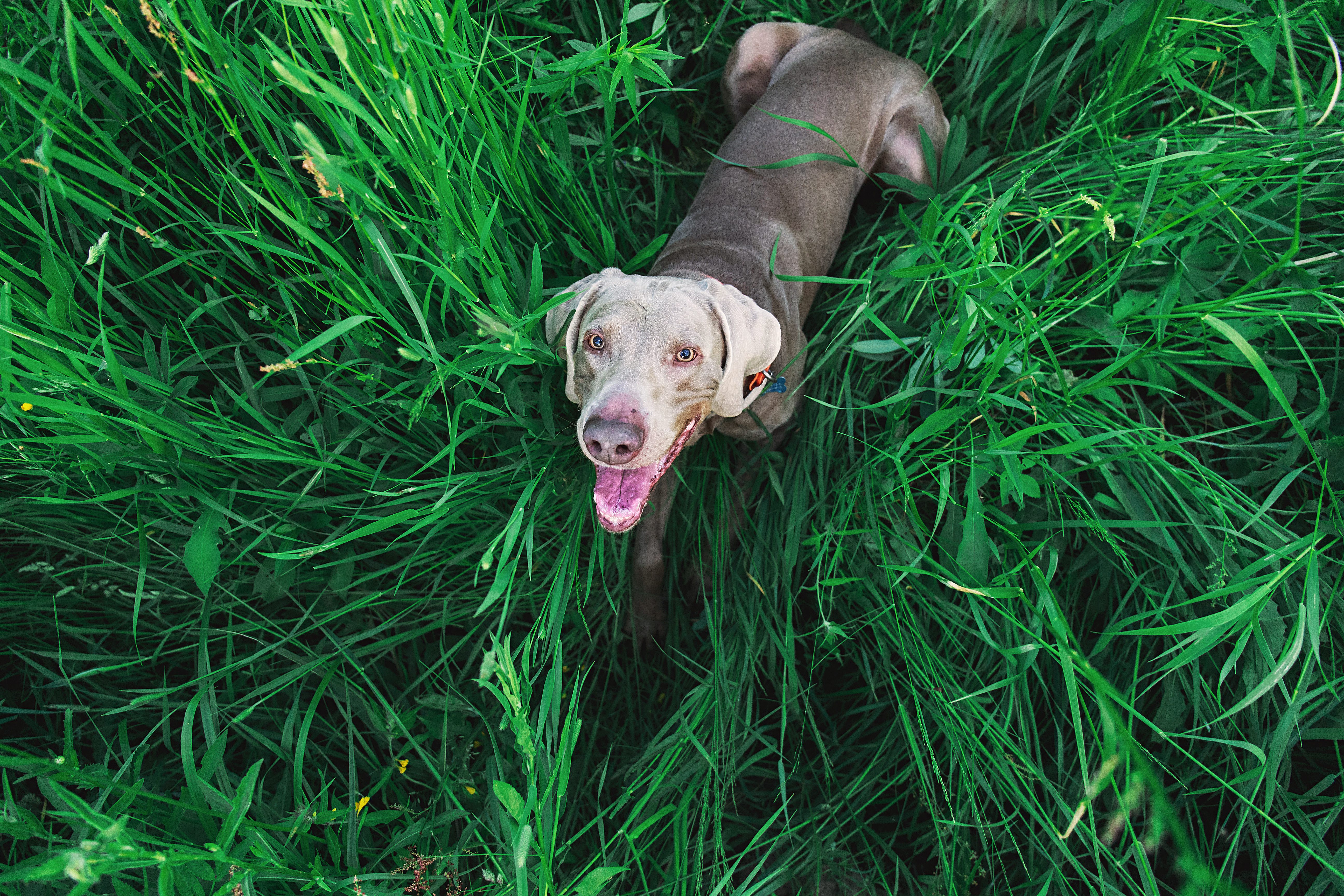
Understanding Normal Canine Grazing Behaviour
Grass eating alone is not usually anything to worry about and can be a normal thing to do.
How Often Dogs Typically Nibble on Grass
One UK-based survey of 1,500 owners reported that about 70% of dogs eat grass at least once a week. For some, they may even have a little chew every day. Cats are often grass eaters, too!
Evolutionary and Wild-Canid Perspectives
In the past, dogs would have eaten their prey, stomach contents and all. Most pet dogs nowadays don't do this, but they do continue to eat grass and plants on occasion.
Common Theories Behind Grass-Eating
Experts have raised a variety of theories as to why domesticated dogs continue to eat grass today.
Dietary Fibre or Micronutrient Seeking
The vegetation in the stomach of their prey contributed to a dog’s gut health and daily fibre consumption. There are some nutrients in grass, including folate and a number of minerals.
Self-Medication for Mild Stomach Upset
Some dogs eat grass when they feel nauseous because they know it will help them vomit. This is useful for those who have recently eaten gone food or a poison, which they need to bring back up.
Instinctive Foraging and Sensory Exploration
Dogs are hard-wired to forage, sniff, and explore their territory. Although they do not really need to do this anymore, no one has told their genes this.
Boredom, Anxiety, or Attention-Seeking
Importantly, many dogs eat grass because they’re looking for something to do or because it can help ease their anxiety. The combination of sniffing, licking and chewing can be calming for many pets.
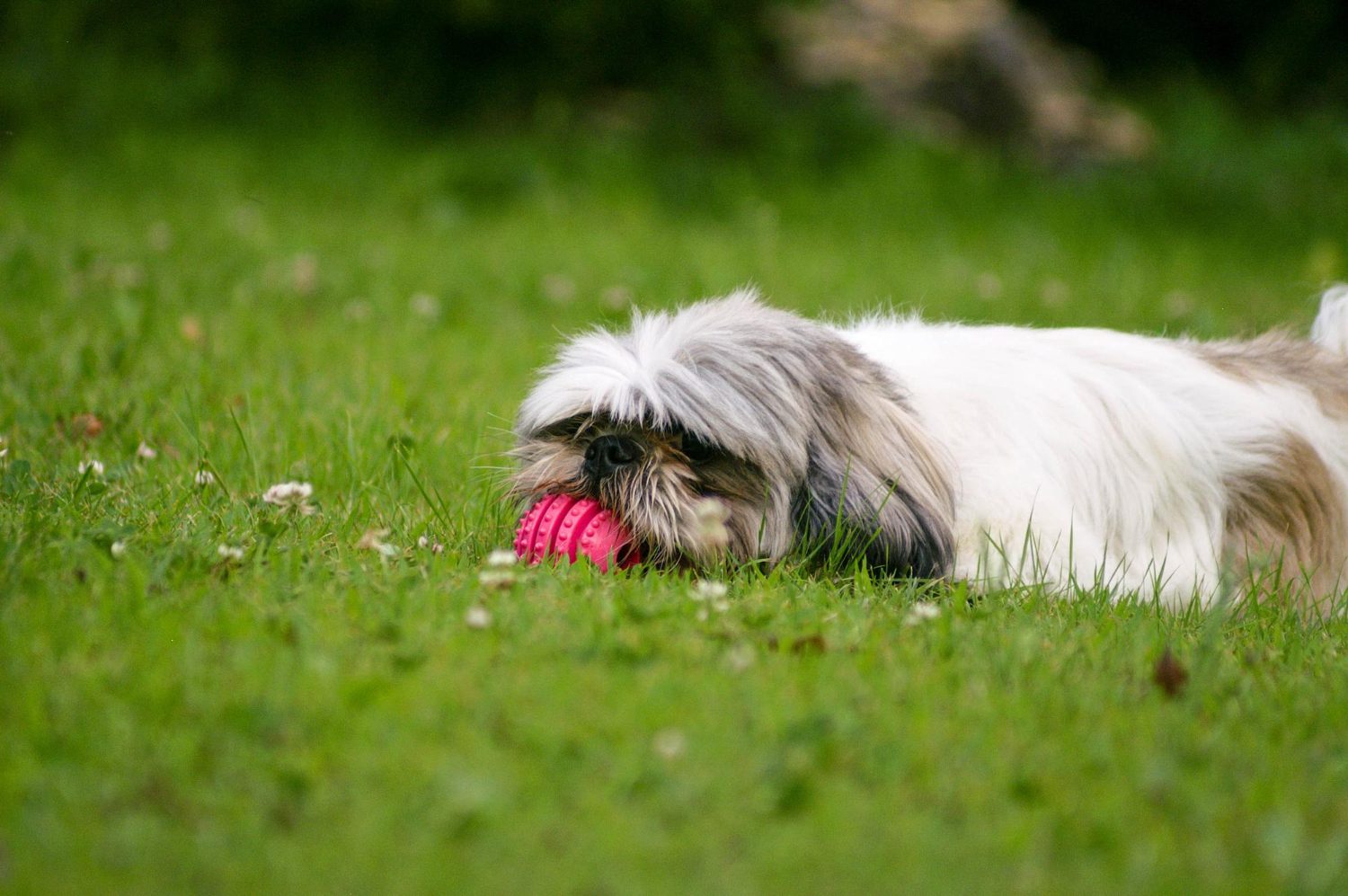
When Grass-Eating Signals a Problem
There are some instances when grass-eating is excessive and is a sign that something is amiss.
Sudden Increase Accompanied by Vomiting or Diarrhoea
If you notice your dog is suddenly eating grass like it is going out of fashion and they have an upset stomach (gastroenteritis), you can be confident that their grass eating is triggered by nausea.
Once they feel better, you should find the grass eating settles again.
Ingestion of Treated Lawns or Toxic Plants Nearby
Grass is usually non-toxic. However, if someone has treated their lawn with pesticides or fertiliser or if they’re munching grass growing beside a toxic plant like daffodils or bluebells, the grass eating does pose a risk.
Excessive Drooling, Lethargy, or Refusal to Eat Regular Food
If your dog is happy to eat grass but refuses to eat its normal food, this is a sign that it is unwell. Some dogs continue to forage for grass even if they have no appetite.
Signs of Gastrointestinal Parasites
Some experts think excessive grass eating is a sign of internal parasites, like roundworms. Other signs or a parasite burden include an excessive appetite, bloating, weight loss, constipation, or diarrhoea.
Pica
Pica is the consumption of non-food items. In addition to grass, this can include socks, plastic, soil, and metal. It can indicate a medical issue, such as poor nutrient absorption within the gut.
Emergencies
Very rarely is grass eating going to lead to an emergency vet visit. One exception is a dog that is experiencing gastric torsion (bloat).
These dogs may gag, retch, eat grass and experience sudden and obvious abdominal bloating.
At-Home Management Strategies
From home, you’ve got plenty of options to help.
Provide Safe, Untreated Lawn Access or Indoor Grass Trays
As mentioned, grass-eating is a normal behaviour and there is no need to forbid it. Make sure the grass your dog has access to is safe for them and not treated with any chemical products.
You may even consider having a grass tray inside for your dog, if you don’t have a garden or you’re concerned your garden grass could pose any risks.
Enrich the Diet with High-Fibre Veg and Formulated Supplements
As grass-eating could be an indicator of a nutrient deficiency or gut imbalance, it is sensible to examine your dog’s diet. Ensure it has plenty of fibre (around 3-5%), and consider offering supplements such as prebiotics and probiotics to support the microbiome.
Some good high-fibre foods include flax, apples, and carrots. For natural probiotics, consider a small amount of fermented vegetables (like cabbage or carrots).
Increase Mental Stimulation and Exercise to Reduce Boredom
If your dog spends a lot of time in the garden wandering about and munching on grass, they may be under-stimulated.
Be sure to provide a variety of physical and mental enrichment activities. Some nice ideas include long, sniffy walks, food puzzles (available from any pet shop), agility, and obedience training.
Train a Reliable “Leave It” and Redirect
If there are times you want to stop your dog from chewing grass—like if you’re concerned it may have chemicals on it, make sure it has mastered a solid ‘Leave it’ command.
Once they’ve come away from the grass, reward and redirect them with something like a chew toy.
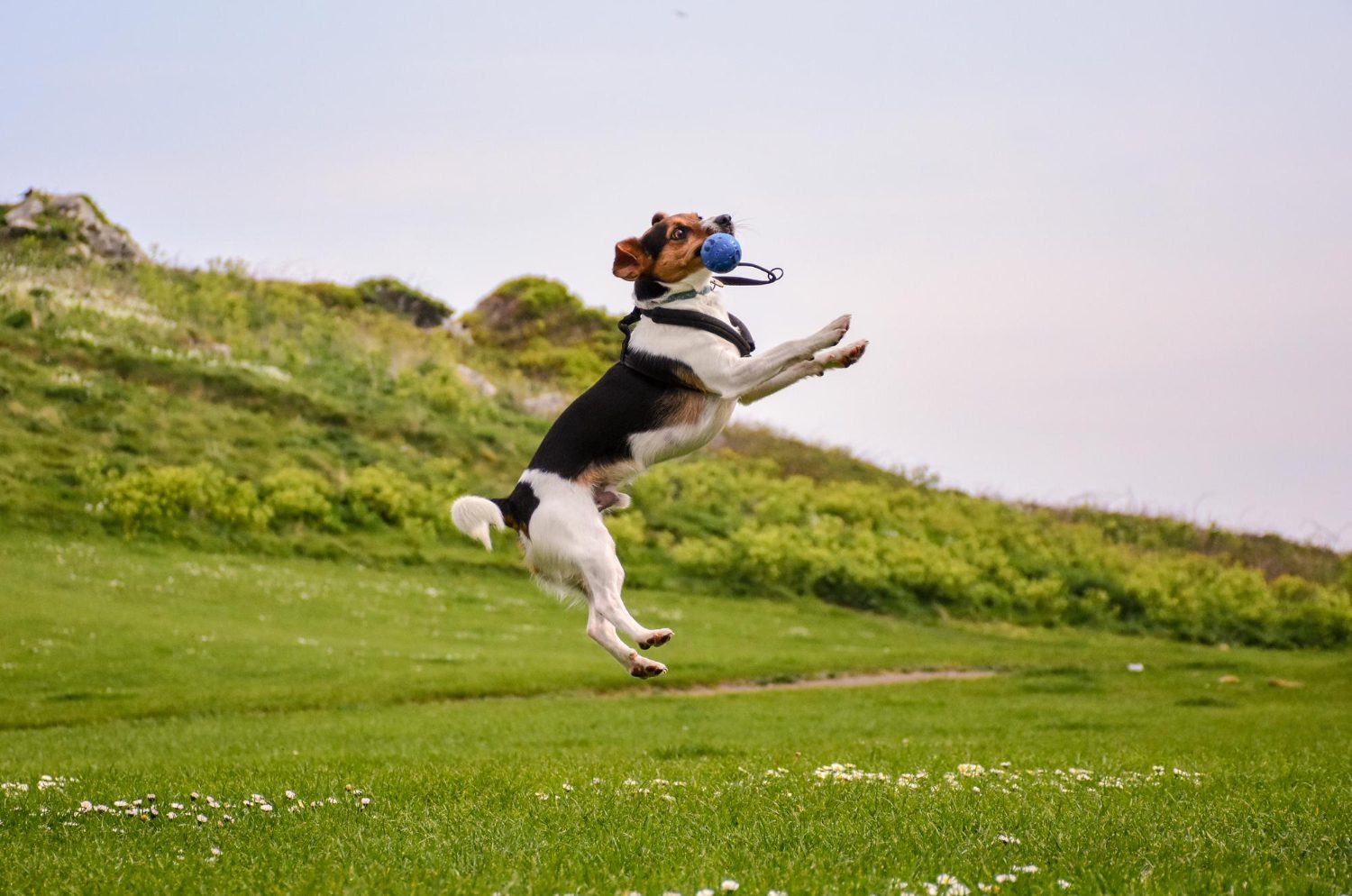
Veterinary Assessment and Treatment
If your dog has other symptoms or is suddenly eating lots more grass, a vet check is wise.
Physical Exam
Your vet will take a medical history and perform a full nose-to-tail physical exam. If necessary, they may also run some further tests, including general blood work and a stool analysis to check for parasites.
Addressing Nutrient Imbalances
If your dog's diet is suspected to be the issue, you may need to change what you're feeding it. It should be high-quality and balanced, meeting the needs of its life stage.
Medication
Less commonly, your vet may discuss offering medication. This may be the case if your dog also has signs such as bile vomiting or runny stool.
Some of the more common medical therapies include gastro-protective medicines and probiotics.
Behavioural Referral for Anxiety-Driven Grazing
For those dogs that have behavioural issues, like compulsive grass eating or generalised anxiety, referral to a canine behaviourist can help. They can assess your dog in person and come up with a tailored plan.
Preventive Care and Long-Term Habits
Moving forward, follow these tips to minimise any excessive grass eating.
Balanced Commercial Diet with Adequate Fibre
Diet is often key here. If all of your dog’s dietary needs are being met, they’re getting plenty of fibre, and they have a healthy gut microbiome, they are unlikely to feel the need to eat grass for dietary reasons.
Regular Deworming
Keep up with regular parasite prevention. For adult dogs who go outside, this is usually done about every three months or so.
Daily Interactive Play, Walks, and Puzzle Feeders
Don’t forget that your pooch needs more than just a quick stroll around the block every day. These clever animals benefit from a range of exercise and mental enrichment.
Try to vary it up, including things like hikes to different places and the use of puzzle feeders.
Ongoing Monitoring of Eating Patterns and Stool Quality
It is good to know what is normal for your dog. If they always have a little nibble of grass in the morning, you can be happy that this is nothing to worry about.
However, if they’re suddenly eating much more grass than before, this could indicate a problem is brewing.
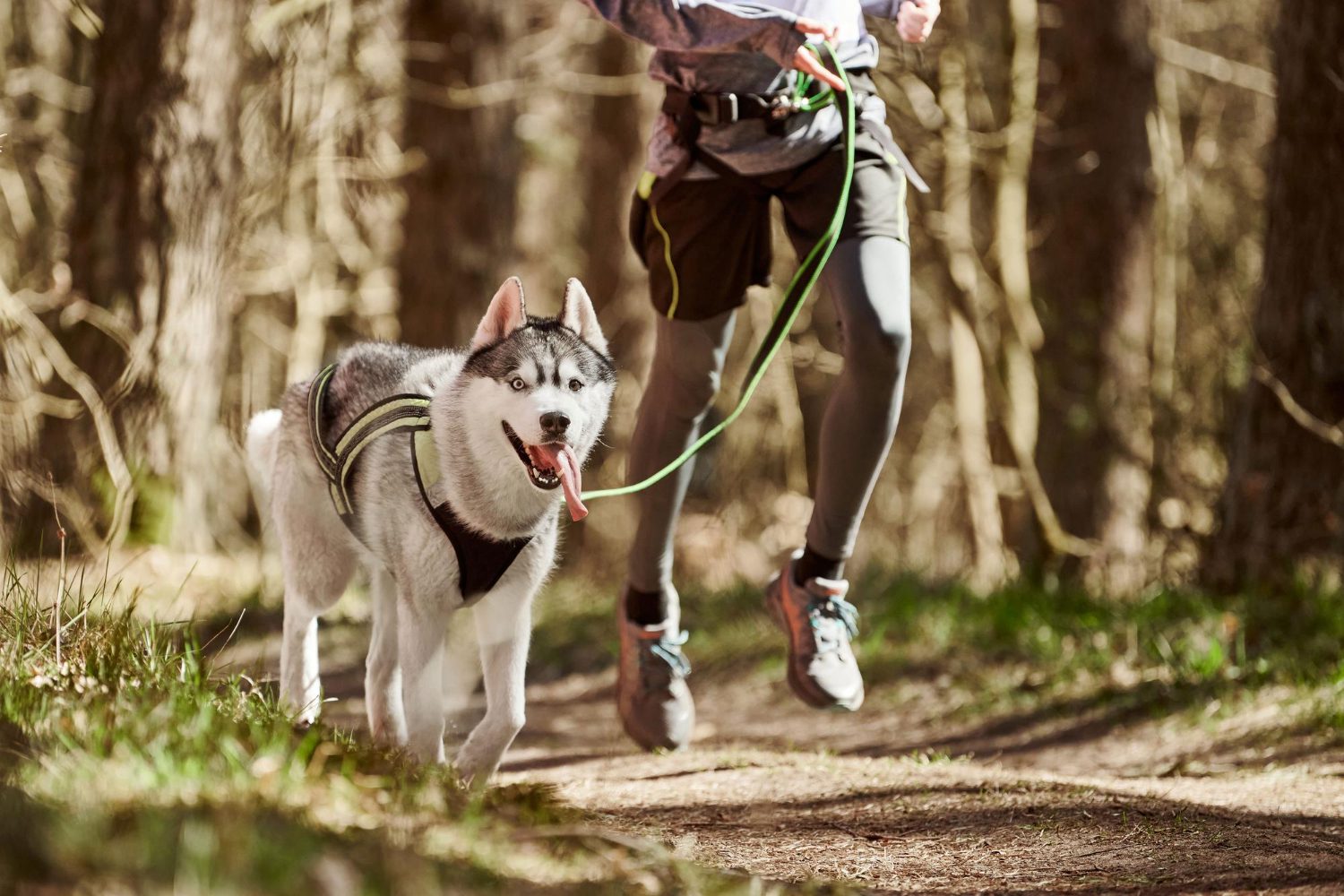
Learn More About Why Dogs Eat Grass
If you need any more advice on dogs and grass eating, you can contact us at any time.
The team is here to help and can guide you through the next steps for your beloved pet.
Why Dogs Eat Grass FAQs
Is it safe to let my dog eat grass if they don’t vomit afterwards?
Yes, it is fine to let your dog eat grass, as long as you know the grass has no chemicals on it and your dog is up to date with their parasite prevention. Make sure there are no toxic plants beside the grass.
Does grass-eating always mean my dog has a nutritional deficiency?
Not at all, no. Most dogs eat grass, and most dogs do not have nutritional deficiencies. Nutritional deficiencies tend to occur in dogs fed imbalanced home-made diets or those with malabsorption disorders.
How can I stop my dog from gulping grass during walks?
If your dog is eating too much grass, you may need to have it on a lead and walk it away from it. You can also teach a solid ‘Leave it!’ command and distract it with things like ball flingers.
Continue reading

Rabbit Haemorrhagic Disease (RHD): What to Do
Learn what Rabbit Haemorrhagic Disease is, the symptoms to watch for, and what to do next.
Read article
Dog Back Pain: Symptoms and Treatment
Discover the symptoms, causes, and treatments of dog back pain and when to see a vet.
Read article
What is the Best Pain Relief for Dogs?
Explore safe pain relief options for dogs, including treatments, signs, and vet guidance.
Read article